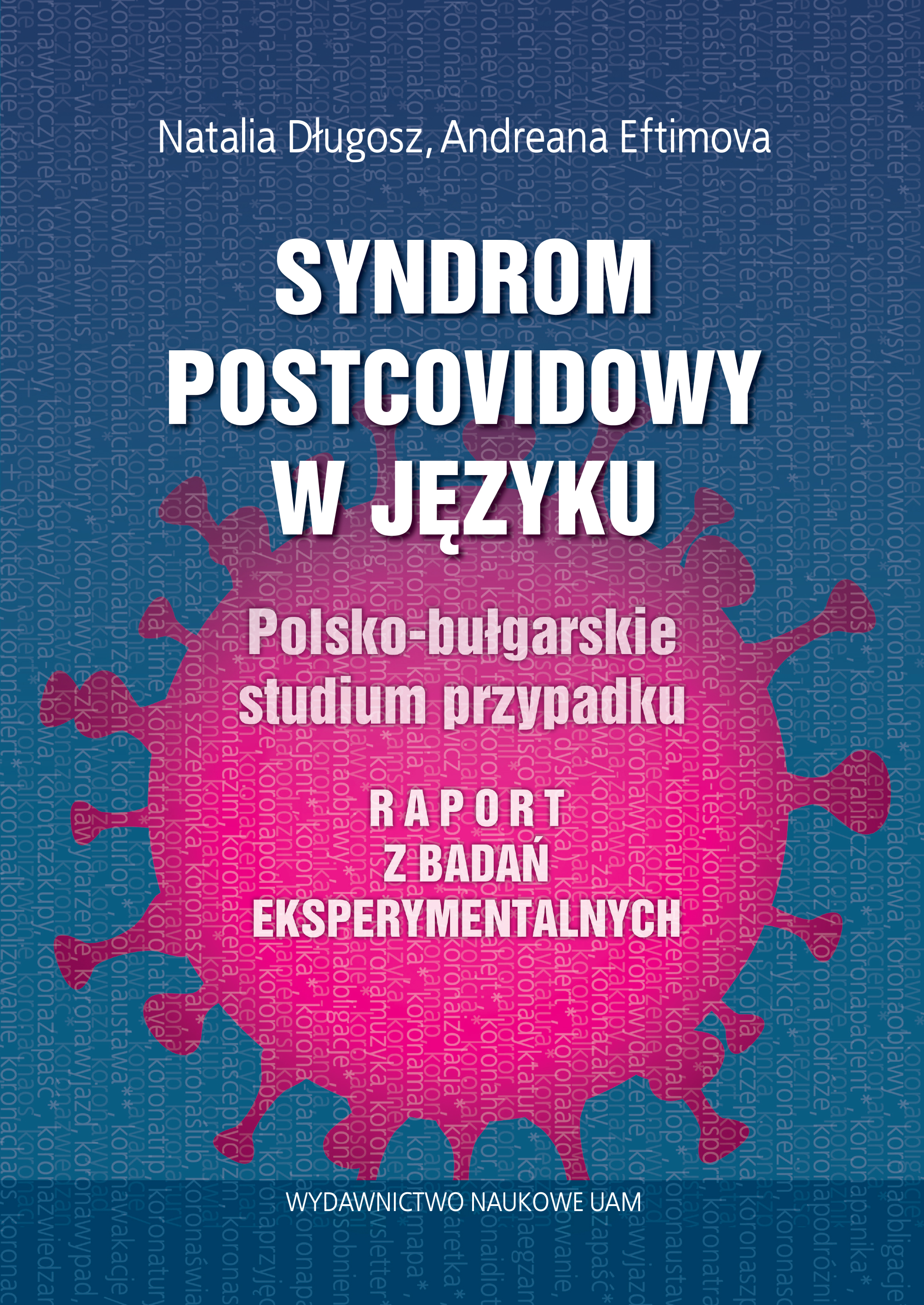Syndrom postcovidowy w języku
Post-Covid syndrome in language
A Polish-Bulgarian case study (experimental research report)
Author(s): Natalia Długosz, Andreana Eftimova
Subject(s): Language studies, Language and Literature Studies, Theoretical Linguistics, Applied Linguistics, Lexis, Comparative Linguistics
Published by: Wydawnictwo Naukowe Uniwersytetu Adama Mickiewicza
Keywords: virolinguistics;new lexicon;components covid-and corona;Polish; Bulgarian
Summary/Abstract: Much has been written about the impact of the Covid-19 pandemic on language. However, this study is of a different nature than studies already published on the Polish or Bulgarian publishing market. First of all, it has a comparative Polish-Bulgarian character. The observations described in the study were made on the spur of the moment, so the subject is exploring language "as it happens". It uses data obtained through an association experiment and a survey simultaneously, which is rare in research. Finally, we deliberately reach for a completely unobvious type of open cognitive definition of meaning. The book is a complex reaction of the synthesis and analysis of linguistic material, which takes place in the context of the strong impact of extreme physical reality on humanity. In the way we react, we try to take into account a complex conceptual substrate, i.e. activate general knowledge (physical, social and metalinguistic dimensions), and then reconstruct the way of perceiving certain elements of reality, which is strongly determined by our imaginative abilities and mental construction. In the process of conceptualizing the meaning of each of the concepts studied here, we clearly see the basic processes of interacting with the world, with the surrounding reality (in this case a hostile one). The concepts of Corona panic, Coronaparty and Corona tourism are largely answers and ways of reacting to very specific pandemic circumstances.
- E-ISBN-13: 978-83-232-4207-9
- Print-ISBN-13: 978-83-232-4206-2
- Page Count: 140
- Publication Year: 2023
- Language: Bulgarian, Polish
- eBook-PDF
- Table of Content
- Introduction

